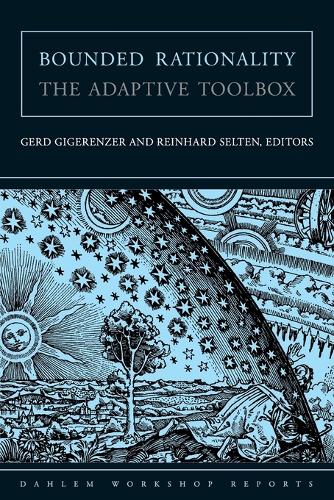
Bounded Rationality: The Adaptive Toolbox
(Paperback)
Publishing Details
Bounded Rationality: The Adaptive Toolbox
By (Author) Gerd Gigerenzer
Edited by Reinhard Selten
MIT Press Ltd
MIT Press
26th July 2002
United States
Classifications
Tertiary Education
Non Fiction
Cognition and cognitive psychology
153.43
Physical Properties
Paperback
394
Width 152mm, Height 229mm, Spine 20mm
544g
Description
How do people, animals, and institutions make decisions in a complex and uncertain world Rational choice theory answers this question from the perspective of an omniscient and omnipotent superintelligence that decides by optimizing. In contrast, this book promotes the concept of the "adaptive toolbox," a repertoire of fast and frugal heuristics for real people with limited time, knowledge, and resources. It views bounded rationality neither as optimality under constraints nor as the study of people's reasoning fallacies. The strategies in the adaptive toolbox dispense with optimization and, for the most part, with calculations of probabilities and utilities. The book extends the concept of bounded rationality from cognitive tools to emotions; it analyzes social norms, imitation, and other cultural tools as rational strategies; and it shows how smart strategies can exploit the structures of environments. It brings together experts from cognitive science, economics, evolutionary biology, and anthropology to create an interdisciplinary basis for understanding the adaptive toolbox.
Reviews
Bounded Rationality constitutes a milestone in the development of a framework for understanding human cognition.
-- Robert Kurzban * Contemporary Psychology *Author Bio
Gerd Gigerenzer is Director at the Max Planck Institute for Human Development, Berlin. He is the author of Calculated Risks, among other books, and the coeditor of Bounded Rationality- The Adaptive Toolbox and Heuristics and the Law, both published by the MIT Press. The late Reinhard Selten was Professor at the University of Bonn and was a co-winner of the 1994 Nobel Prize in Economics.
